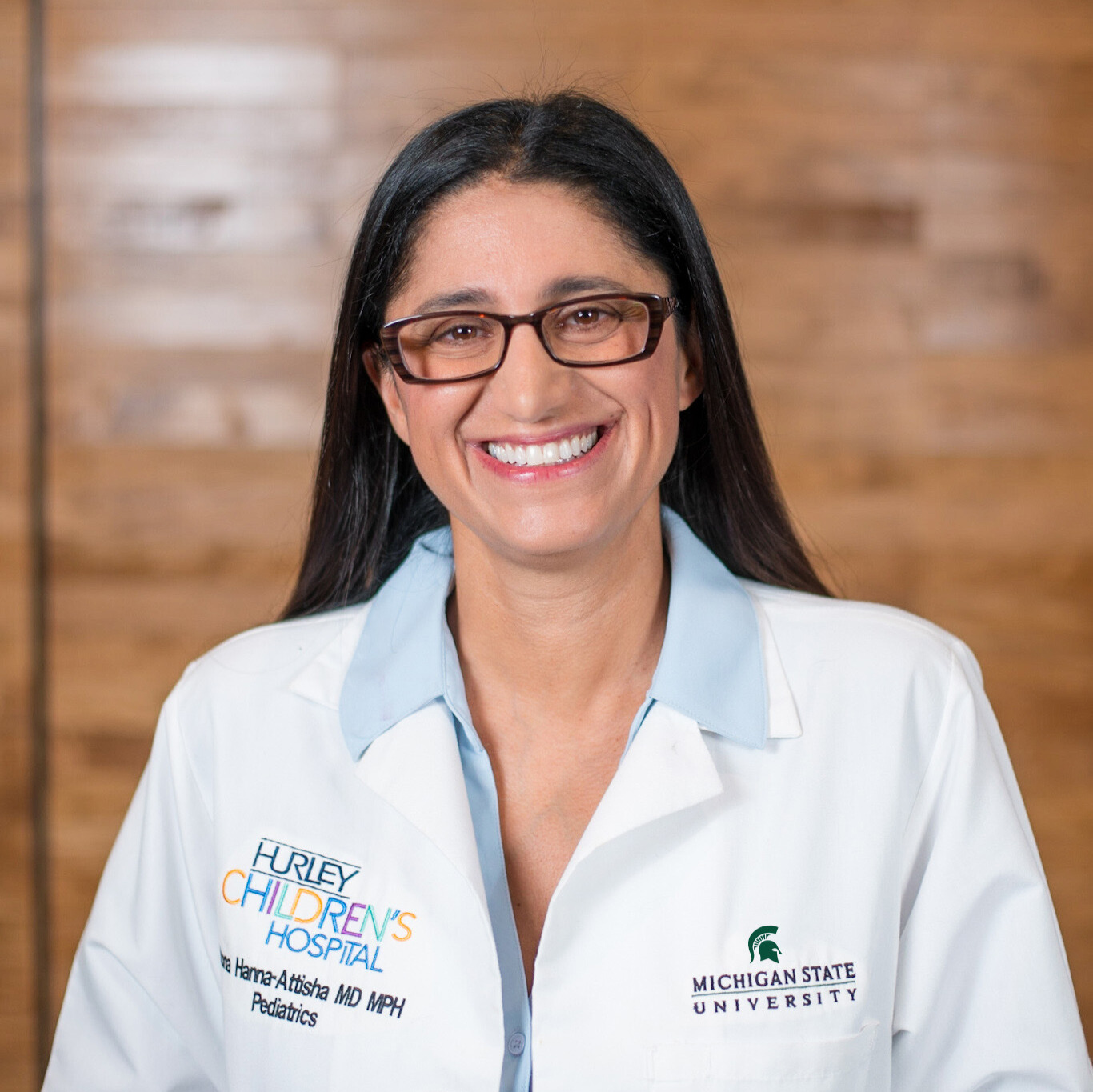Op-Ed: Moms and babies were struggling in Flint, Michigan. Cash offers a lifeline of hope.
February 14, 2024 - Mona Hanna-Attisha, MD
![]()
Americans are expected to spend about $26 billion on Valentine’s Day this year. That’s a lot of chocolates, red roses and candlelit dinners. But what if that price tag on love went beyond one heart-shaped day? And what if the target of our affection was actual living, chubby baby cherubs?
This year, Flint, Michigan, will mark Valentine’s Day differently. There will still be love songs and ice cream, but the investment in love is collectively being directed toward our littlest babies. As Winnie the Pooh said, “Sometimes the smallest things take the most room in your heart.”
On Wednesday, Februrary 14, Flint celebrated the launch of Rx Kids, the nation’s first citywide cash prescription program for pregnant moms and infants. This year, every expectant mom in the city will receive $1,500 during mid-pregnancy and, once their babies are born, $500 per month until they turn 1 year old.
More than 300 moms have already enrolled in the program since Jan. 1, and over $400,000 has been prescribed for diapers, food, cribs or whatever each family determines they need most.
It’s a landmark accomplishment – reimagining the best way to care for mothers and babies.
“To me, Rx Kids is not just a program, it’s a lifeline and a promise of support for every mother in our city," said Alana Turner, a pregnant mom in Flint. "It is about coming together and supporting each other. I am beyond excited for the community to celebrate a future where our babies have the opportunity to thrive and experience love from so many caring people.”
In one of the poorest cities in our nation, Rx Kids offers a bold solutions-driven effort to eliminate infant poverty, bolster family financial security, revitalize the local economy and provide a foundation for health, hope and opportunity.
Once a city known for failing its children with poisoned water and governmental neglect, Flint is becoming the standard-bearer for a new child-centric social contract. It's a vision rooted in science, common sense and love.
Families struggle financially during babies' first year
There is no more important time to care for our children than in their very first year of life. But for most families, it’s a time when their household income plummets. Babies are born into families that are strapped financially, statistically the lowest point for income over the course of an entire life.
Sadly, this first year, when families are the poorest, is also the most critical window of development for children, a time when their brains double in size and when growing up in adversity particularly shapes future health and wealth.
We’ve seen the difference made by the expanded child tax credit in 2021, when millions of children were lifted out of poverty and millions of families had less trouble putting food on the table, parents felt less anxiety and reported being more financially secure, all while the nation experienced rapid job growth.
The child tax credit is back in the news; the House of Representatives has passed a new expansion of the credit that doesn’t go nearly as far as it did in 2021, but would still lift hundreds of thousands of children out of poverty.
Countries all over the world have child-benefit programs like this – many for decades. As a result, evidence is mounting that one of the most efficient and effective ways to help families and improve health and opportunity is through no-strings-attached cash that empowers and trusts families to meet their needs the ways they think is best.
Perhaps the most exciting part of Rx Kids is the beautiful public-private partnership driving it. A village has stood up to support Flint’s children. Funded through a mix of philanthropy and state and local government support, more than $43 million has been committed already – out of a $55 million goal.
In particular, the state of Michigan has dedicated $16.5 million from a federal block grant called Temporary Assistance for Needy Families (TANF). This funding stream was once meant to help poor families with children, but over the years many states have diverted the funds for other purposes.
The Rx Kids prenatal and infant cash model, especially the novel application of flexible TANF funds, is now generating interest from all over the nation, red and blue states alike. Michigan Gov. Gretchen Whitmer’s executive budget released this month includes $24 million to expand work like this throughout the state, bolstering the financial security of thousands of households with young children.
But why limit the love to Michigan? What if the rest of the country joined our movement to give babies a better start in life?
Expanding Rx Kids to include the entire nation, providing cash support for every expectant mother and infant, would cost about what we collectively spend on Valentine’s Day now.
Instead of spending $26 billion on flowers and fragrances, we could invest in a solid foundation and better futures for all our children. A foundation built on love.

Mona Hanna-Attisha, director of Rx Kids, is a pediatrician and associate dean of public health, and director of the Pediatric Public Health Initiative. She is the author of “What the Eyes Don’t See: A Story of Crisis, Resistance, and Hope in an American City.”
 H. Luke Shaefer, co-director of Rx Kids, is the Hermann and Amalie Kohn Professor of Social Policy at the Ford School of Public Policy and director of Poverty Solutions at the University of Michigan. He is the co-author of “$2.00 a Day” and “The Injustice of Place”.
H. Luke Shaefer, co-director of Rx Kids, is the Hermann and Amalie Kohn Professor of Social Policy at the Ford School of Public Policy and director of Poverty Solutions at the University of Michigan. He is the co-author of “$2.00 a Day” and “The Injustice of Place”.
Related News
This op-ed was picked up in a number of publications, including USA Today and Detroit Free Press.
See related news from The Atlantic: The case for spending way more on babies and Detroit Public Radio's Created Equal: Flint's Rx Kids program aims to abolish childhood poverty.

